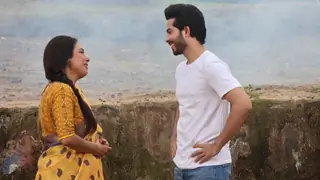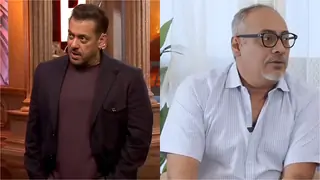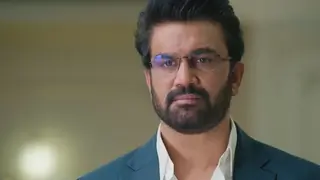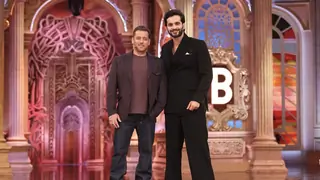A music connoisseur remembers
By Asif Noorani
 The one singer in whose voice O.P. Nayyar would have loved to record his compositions was Noor Jehan. When he made his debut in Mumbai, she was in Lahore. 'She used to sing with full-throated ease,' he said of the Malika-i-Tarannum
The one singer in whose voice O.P. Nayyar would have loved to record his compositions was Noor Jehan. When he made his debut in Mumbai, she was in Lahore. 'She used to sing with full-throated ease,' he said of the Malika-i-Tarannum
A couple of decades ago, I played O.P. Nayyar's songs to pop singer Junaid Jamshed when the band Vital Signs had just made its debut. Junaid was swept off his feet. "This is the music of our times," he enthused, to which I responded, "I think his music has a timeless appeal. It was trendy yesterday, it is so today and it will remain so for years to come." I was proved correct the other day when I saw a four-year-old tapping his feet to the pulsating rhythm of the Asha-Rafi duet from the film Naya Daur, Mang ke saath tumhara, Mein ne mang liya sansar.
Yet it was surprising to see that after enjoying two-and-a-half decades of immense popularity, Nayyar went into disfavour with producers. They said he had lost his touch. That may or may not have been true, but he had certainly lost two of his best singers: Mohammed Rafi and Asha Bhonsle. "The biggest mistake that I committed in my professional life was to quarrel with Rafi just because he came a couple of hours late for my recording. He was the greatest male singer and was also a very fine person. I had to opt for Mahendra Kapoor, who just did not have the verve or the vocal quality to do full justice to my compositions," he told Sultan Arshad, the national flag carrier's former manager in Mumbai, with whom he stayed for a few days after he walked out of his house in 1989.
Arshad had made a lot of friends in Bollywood, mainly those who had anything to do with music, and he was trying to bring about a professional patch-up between Asha and Nayyar. Asha had agreed but Nayyar just did not want to have anything to do with her. She had had a live-in relationship with the composer who had transformed her from a poor producer's Lata Mangeshkar into a front-ranking playback singer in her own right. Somehow they parted and she got married to a younger composer, R.D. Burman. But by that time, she was in the same league as her elder sister, Lata Mangeshkar.
It was Nayyar's major achievement that without ever using the Indian melody queen, Lata's voice, he shared the top rung of the ladder with such composers as Naushad, Shanker Jaikeshan and S.D. Burman. Years later, when Madhya Pradesh Government decided to honor him with what was called the Lata Mangeshkar Award which was accompanied with Rs100, 000 in cash, he declined, saying that it ought to be
given to a singer and not to a composer. This was in spite of the fact that he was hard up for money. He had not managed his finances very well when he was among the three or four most highly paid music directors.
During his heyday, he often took a stand for the under privileged. He was the only one to crusade for the rights of musicians who played for different composers, and was successful in getting them substantial raises.
During my stay with him for a week at Mr. Arshad's flat in Mumbai sometime in late 1992, he was reluctant to give interviews for he felt that the press often misquoted or quoted him out of context. But two days later, he conceded and we had three sessions. His memory had begun to fail him, but more rewarding were his reminiscences.
"One evening Geeta Dutt phoned me and said, 'Nayyar sahib, kya mein ab itni kharab singer ho gaye hoon ke ab aap mujh se aik bhi gana naheen gawaynge?' (Have I become such a bad singer that you would not give me even one song to render?). I curse myself because she died a week later. Like Shamshad Begum, she had sung some of my best songs in the '50s," recalled Nayyar. The one singer in whose voice he would have loved to record his compositions was Noor Jehan. When he made his debut in Mumbai after Partition, she was in Lahore. "She used to sing with full-throated ease and she had a full-bodied voice. I haven't heard her latest songs so I can't comment on those," he said of the Malika-i-Tarannum. He did see her in the studios of All India Radio, Lahore, where she used to come in a burqa, perhaps to avoid being mobbed.
He often talked of Lahore, the city where he was born and spent his formative years. When Arshad told him that he had a large fan following in Pakistan, he said that he wanted to go to Lahore but feared that the sentimental person that he was, his feeble heart would not be able to bear the emotional jolt that he would experience on landing on the soil of his favorite city.
Not many people know that Nayyar sahib made his debut as a singer in the children's programs of All India Radio's Lahore station and the composer was none other than Master Inayat, who later made it big with his score in many Pakistani movies. All those who pay him tributes call him the rhythm king, which he was. But his compositions were highly melodious as well. For instance his Talat-Asha duet from Sone Ki Chidya — Pyar Per Bus To Naheen Hai Mera Lekin and Asha's solo from Pyar Jaye Per Vachan Na Jaye — Chaen Se Humko Kabhi Aapne Soney Na Diya are no less mellifluous than the numbers of Naushad, Madan Mohan, S.D. Burman and Khursheed Anwar.
Nayyar sahib was also into homeopathy. He never charged money from his patients. I saw him phoning his patients every morning and enquiring about their conditions.
I last spoke to him on the phone in September and he said: "There is not much time left now. When are you visiting Mumbai to see me?"
I told him very soon.
"How soon?" he persisted.
"Sometime in mid-2007," I replied. Sadly, it didn't prove to be soon enough.

























